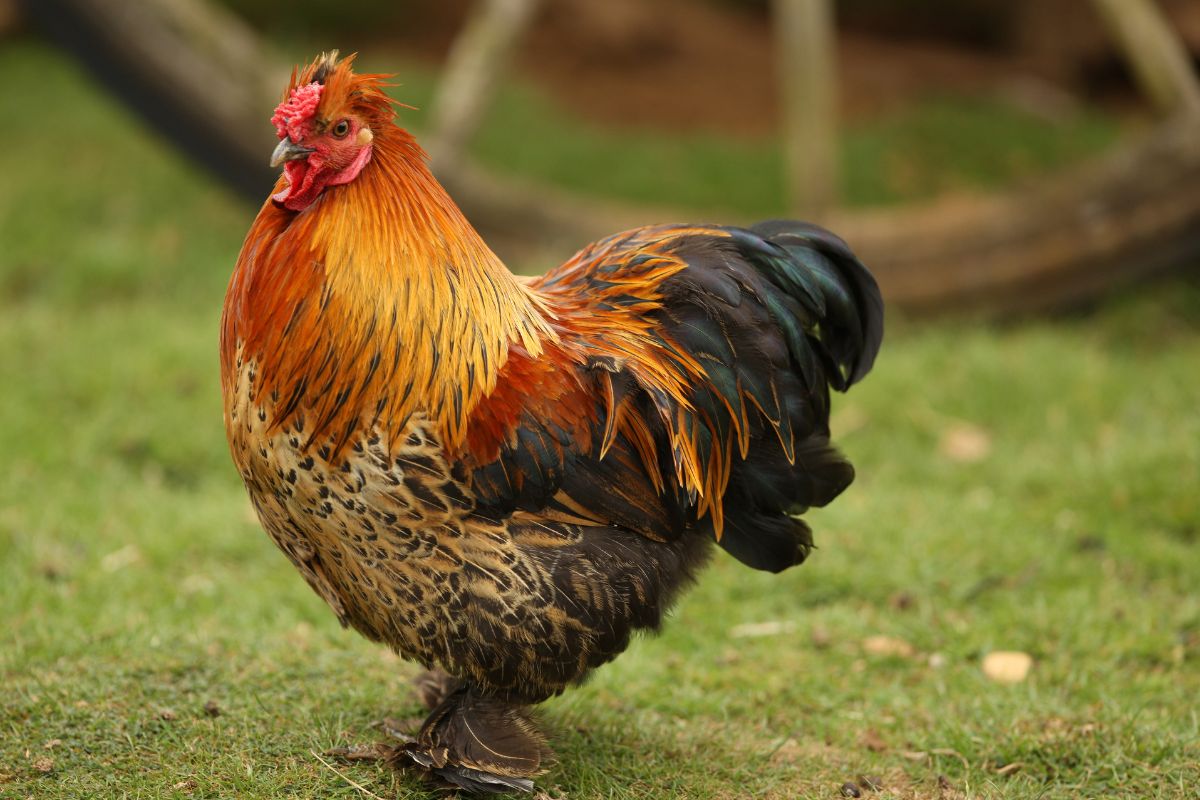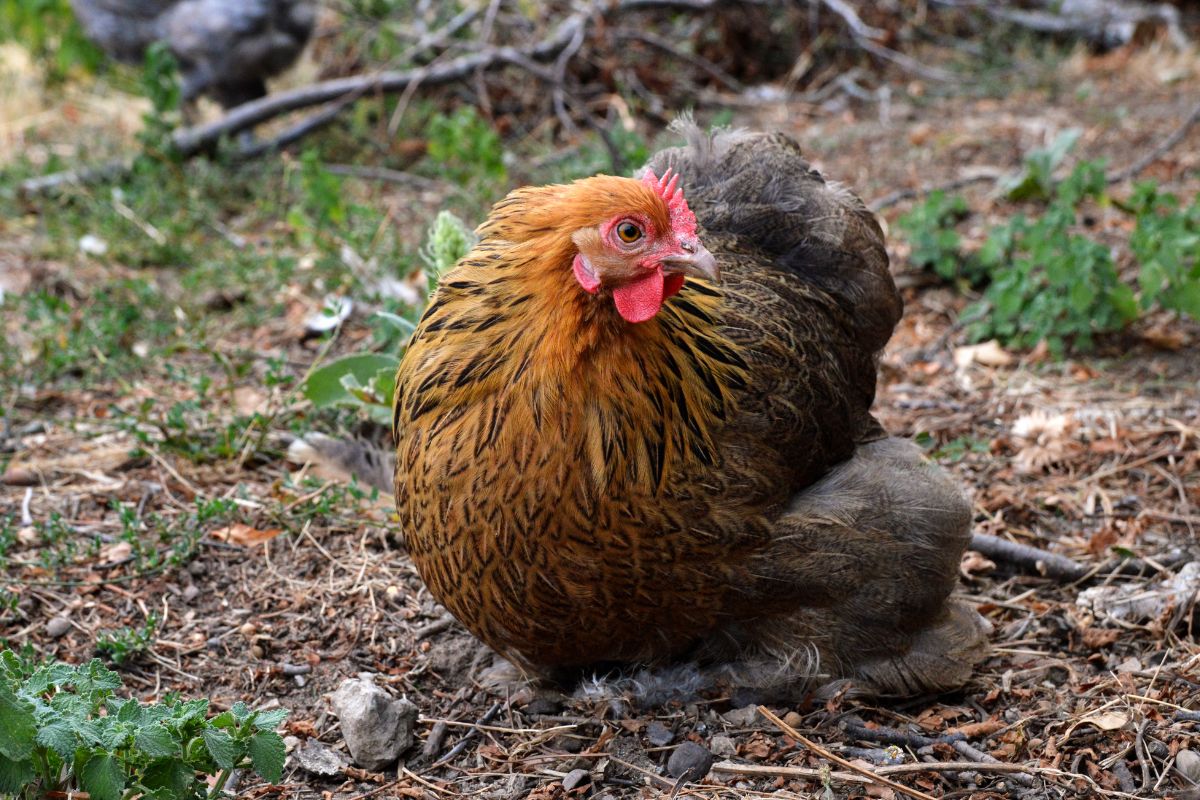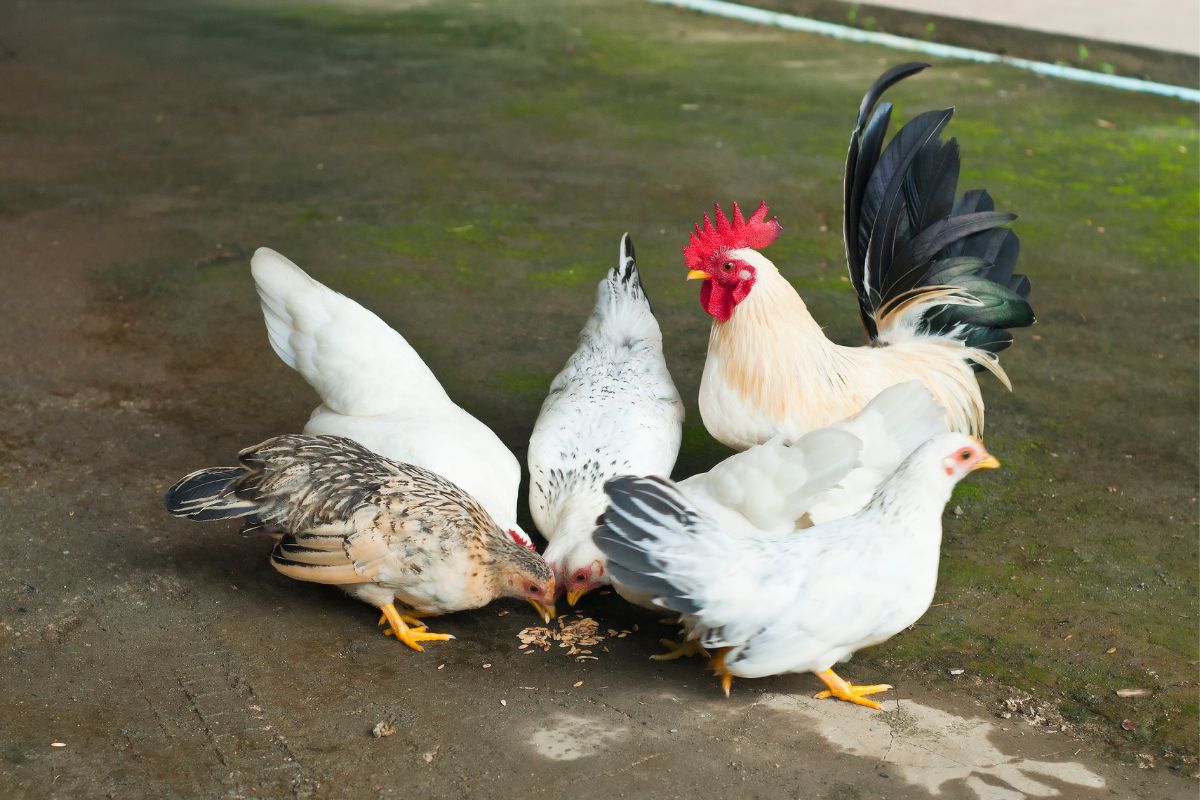
The average life expectancy of a bantam chicken is 5-8 years. They do not typically live as long as regular chickens, although there are some environmental facts that can affect their life expectancy.
Jump to:
What Are “Bantam” Chickens?
If you’re not sure what a bantam is or have never owned one, they are basically miniature chickens.
Although, technically speaking there are “true bantams” and “miniatures” as I’ll explain in more detail in this article.
Bantams, or “bantys” as they’re also called are typically about a quarter or a third the size of a regular chicken. They tend to weigh just 1-3 lbs, and are incredibly cute!
Related - Read; what are banty chickens to learn more!
Factors That Affect the Life Expectancy of Bantams
As with all chickens, there are some factors that will affect their life expectancy. Although, you can never discount having a chicken live to ripe old age well past their expected age.
The main factors that affect their lifespan include:
- Breed - Different breeds are known to live longer than others.
- Nutrition - Quality of nutrition will always affect a chicken’s general health and life expectancy.
- Health issues - The health issues a bantam faces during their lives, such as disease and parasites are a factor.
- General care - I’m sure you’ll give your bantams 100% TLC, and they’ll live longer for it.
Related - How long do roosters live on average?
How Long Do Bantam Chickens Lay Eggs?

This will vary depending on the breed of bantam, but as a general rule bantams lay an egg every other day during their laying season.
On the high side, you could expect up to 200 eggs a year from a prolific laying bantam with all of the ideal laying conditions for a long period in a year.
Once they start laying, you can expect them to lay at their peak for just two years. After this, they will start to taper off.
It will come as no surprise that their eggs are a lot smaller than regular chicken eggs. But what did you expect?
There aren’t many people that keep bantams for their eggs. Unless they only want enough eggs that they can use themselves for the most part.
Different Types of Bantams
If you’re looking to raise bantams, it’s further complicated by the fact that there are different types of bantams as well as various breeds.
The main classifications on bantams are:
True Bantams
“True” bantams are chickens that do not have a larger counterpart. They aren’t a “mini-me” of a well-known breed of chicken.
Example breeds include the Seabright, Rosecomb, Japanese, and Silkie.
Miniatures
Although all bantams are seen as miniature chickens, only the breeds that were bred from regular chickens and “made” into bantam size are seen as “miniatures”.
A lot of the popular chicken breeds have been selectively bred to produce a bantam. Such as Rhode Island Red, Sussex, Orpington, Ancona, and so on.
Why Raise Bantam Chickens?

Apart from being cute - because all miniature versions of things seem to be cuter - there are some practical reasons why people raise bantam chickens:
Space
This is the number one reason why some people choose - or even have to - own bantam chickens.
Being less than half the size of a regular chicken, they require a lot less space. For some people living in urban settings, this is the only way they can own backyard chickens.
From that standpoint, bantams are awesome. I may be a little biased, but in my opinion, there are few things more rewarding than raising chickens and enjoying fresh eggs.
Family-Friendly
Being smaller, they are also easier for children to handle and care for. We forget how intimidating a full-size chicken can be to small children that are around the same size.
Just imagine if you had a chicken the same size as you! They also make a lot less mess and take up less time. Perfect if you have a busy household and a lot on your hands already.
Less Expensive
Keeping chickens is not a super expensive hobby, but if you’re on a budget and desperate to still own chickens you can cut costs raising bantams.
You still need housing, bedding, and all the same stuff as you would for keeping regular backyard chickens. But smaller versions of everything.
It’s the lifetime costs that are going to be a lot less. Bantams eat a lot less, which believe it or not adds up. Plus, it’s the nicest thought, but as I explained above, they don’t live as long either.
In Summary
The bad news is that bantams do not have as long a life expectancy as regular chickens living an estimated 5-8 years on average.
But that’s literally the only bad news when it comes to owning bantams.
If I sound biased - it’s because I am - in my opinion, bantams are one of the cutest and most enjoyable pets to raise and care for.
If you have space and the means, go for it! Start looking into the different breeds and find which is the best-suited breed for you.





